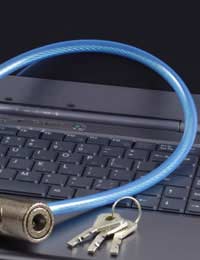Protecting and Storing Freelance Business Files

All freelancers must store their business files with care and protect them from common threats. In some instances there are legal mandates about how long files must be stored, for example with tax documents, but a freelancer will likely also find that keeping an archive of files helps them better analyse and plan their business anyway.
There are many types of business files that freelancers may want to store, and many common options for storage and protection.Types of Business Files to Store
Freelancers must keep all documents related to their tax returns. This include tax forms, receipts, invoices, bank statements, credit card statements and any other documents that were used for calculating tax obligations. Paperwork related to National Insurance and pension contributions should also be stored. Most freelancers also choose to keep full files on the projects that they complete including client briefs, copies of invoices, drafts and copies of work completed as well as communications between themselves and clients. Freelancers who rent office space will want to keep files on these transactions, as well as any contracts that (s)he signs in the course of business. Many freelancers also find that keeping files on client contact information, past marketing methods and even daily diaries can be helpful in the future.Common Storage Options for Business Files
There are many ways for freelancers to store business files. Freelancers will want to keep hard copies of all of their files which will mean printing out all electronic files. Hard copies can be kept in folders and/or boxes. Usually files are stored on site, such as in the freelancer’s home or office, though they can also be stored in dedicated storage facilities. Many freelancers also keep electronic copies of their business files. This can be done by setting up folders in their email accounts, using online tools such as Google Documents, storing files electronically at sites such as Box.net and XDrive.com or simply saving to their computer’s hard drive. Regardless of which electronic method a freelancer chooses for file storage, (s)he should be sure to back these files up regularly and especially after any changes have been made to them.Common Protection Options for Business Files
There are also many ways for freelance workers to protect their business files. Locked file cabinets, safes and fire-proof containers are all smart ideas for protecting hard copy files. If such files are being stored in a dedicated facility then making sure that this facility is up to all health and safety standards is also important. Electronic files also need protection. Encrypting files and password protecting them are important steps to keeping them safe. Changing passwords often, and staying away from obvious password choices, is also important. Changing electronic files to “read only” before sending them to other users will help freelancers protect their work and their files as well.Storing and protecting business files is important for all freelancers. Though the files they decide to keep may vary, some common storage and protection options do exist for all freelance workers.
Related Articles in the 'Freelance Finances' Category...
- How to Deal with Non Paying Clients
- Finance Tools and Software for Freelancers
- Freelance Workers: Tax and NI Responsibilities
- What if Your Freelance Work is Not Profitable?
- Deciding on a Freelance Marketing Budget
- Freelance Workers: Bookkeeping and Accounts
- Common Tax Write-Offs for Freelance Workers
- Budgeting for a Freelance Business


Re: Advantages and Disadvantages of Freelance Work
Freelancing can open ways to new customers, new zones of law, new abilities and new companions. Freelancing…
Re: Maintaining Contact With Previous Clients
Do you want to grow your business? Do you have serious, defined sales goals?
Re: What Is Freelance Work?
Brilliant writing ! this article are help me most.
Re: All About Freelance Genealogy
i never new you could get profesional genealogists. great idea. I never have the time to do it properly - have bits of envelopes…